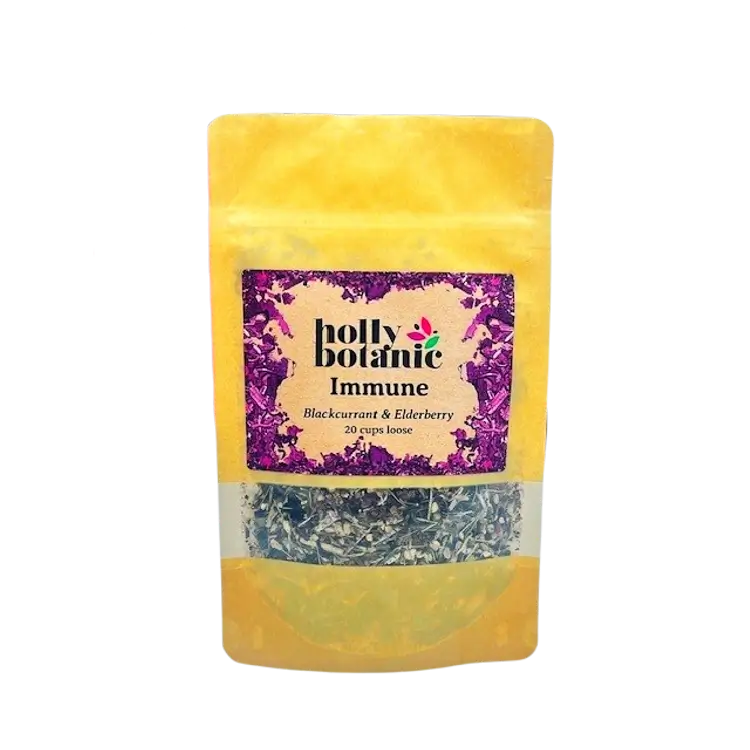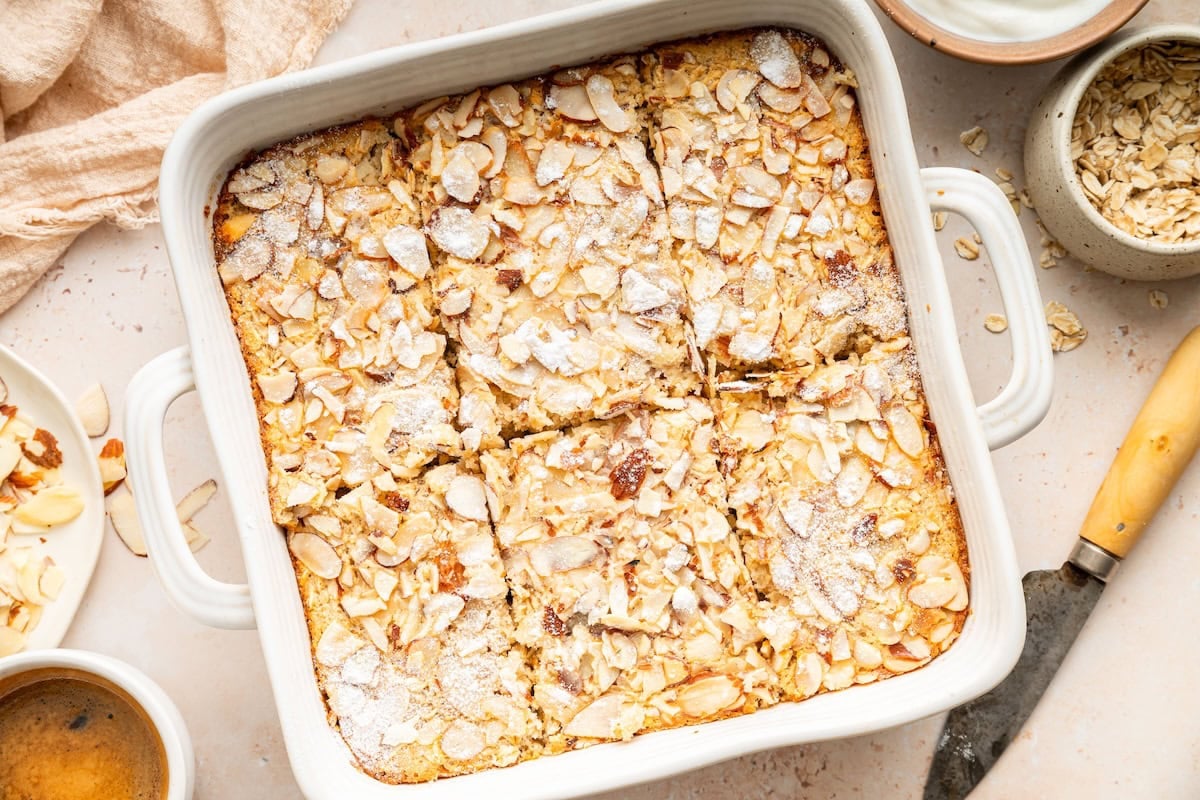This entry was posted on 18th August 2025.
It’s a feeling many of us know all too well. That uncomfortable tightness in your abdomen, the sensation of being over-full even when you haven’t eaten much, the feeling that you’ve swallowed a balloon. Bloating is more than just a minor inconvenience; it can disrupt your day, affect your confidence, and leave you feeling sluggish and uncomfortable.
Many of us blame bloating on a specific meal, eating too fast, or fizzy drinks. While these may certainly be triggers, what if the root cause was something deeper? What if the key to a calmer, flatter stomach lies within the invisible ecosystem living in your gut?
Increasingly, science is showing us that for persistent bloating, the answer may be found in the health and balance of your gut microbiome. In this article, we’ll explore this fascinating connection and uncover how you can restore order to your gut and finally beat the bloat.
First, What Exactly Is Bloating?
Before we dive into the microscopic world of gut bacteria, let’s clarify what we’re talking about. Medically, bloating refers to a sensation of increased pressure in the abdomen. It’s often, but not always, accompanied by visible abdominal distension (when your tummy actually looks bigger).This pressure is typically caused by trapped gas in the gastrointestinal (GI) tract. While some gas production is a normal part of digestion, excessive gas can lead to that familiar feeling of being uncomfortably full and stretched.
Common, well-known triggers for occasional bloating include:
- Swallowing excess air from eating too quickly, chewing gum, or drinking through a straw.
- Consuming carbonated beverages.
- Eating large amounts of certain foods known to produce gas, like beans, lentils, broccoli, and cabbage.
But if you find that bloating is a regular, frustrating part of your life, it’s time to look beyond these surface-level triggers and investigate the health of your gut itself.
A Hidden Culprit: An Unhappy Gut Microbiome
Inside your digestive system resides a complex and bustling ecosystem known as the gut microbiome, containing trillions of bacteria, fungi, and other microbes. In a healthy gut, there is a harmonious balance between beneficial (“good”) bacteria and potentially harmful (“bad”) ones.
However, this delicate balance can be disrupted by stress, a poor diet, illness, or certain medications. This state of imbalance is called dysbiosis.
When dysbiosis occurs, the less desirable microbes can begin to dominate. Here’s the crucial link to bloating: these microbes are not very efficient at their job. When they encounter undigested food particles (especially certain carbohydrates and fibres), they ferment them in a way that produces a large amount of gas, such as hydrogen and methane. This excess gas gets trapped, leading directly to the pressure and distension of bloating.
In contrast, a gut rich in diverse, beneficial bacteria digests and ferments food far more efficiently, producing vital nutrients for your body and, importantly, less unwanted gas.
Restoring Order: The Power of Probiotics and Prebiotics
So, if an imbalanced gut is the problem, how do we fix it? The one of the solutions can be to actively re-establish a healthy microbial community. This is where two key players come in: probiotics and prebiotics.
Think of it like restoring a neglected garden:1. Probiotics: The Reinforcements (The Seeds) Probiotics are the live, beneficial bacteria themselves. By introducing them into your system, you are directly reinforcing the population of “good guys” to help them reclaim territory from the gas-producing microbes. The most well-researched and effective strains for tackling digestive issues include:
- Lactobacillus species (L. Acidophilus): This is one of the most famous and well-researched probiotics. They primarily reside in the small intestine and are fantastic at helping to break down food, absorb nutrients, and keep unfriendly microbes in check.
- Bifidobacterium lactis: This is a strain that lives mainly in the large intestine. Research has shown it is particularly effective at reducing transit time (keeping you regular), improving overall gut comfort and may alleviate functional gastrointestinal symptoms like bloating.
- Prebiotics: The Essential Fuel (The Fertiliser) Simply planting the seeds isn’t enough; you need to provide the right food to help them grow and flourish. This is the job of prebiotics.
Prebiotics are specific types of dietary fibre that your body cannot digest. They travel intact through your system until they reach the large intestine, where they become the perfect food source for your beneficial bacteria. This targeted nourishment helps your good bacteria to multiply and thrive, further tipping the balance in your favour. Excellent prebiotic fibres include:
- Inulin: A soluble fibre that is known to be a favourite food of Bifidobacterium.
- Psyllium Husk: Another soluble fibre that not only acts as a prebiotic but also helps to promote regularity by forming a gentle, gel-like substance in the gut.
The Synbiotic Solution: A Smarter Approach to Gut Health
For years, people have taken either a fibre supplement (a prebiotic) or a probiotic capsule. But the most effective modern approach is to combine them. This powerful combination is known as a synbiotic.
A synbiotic formula provides both the beneficial bacteria (probiotics) and their tailored food source (prebiotics) in one convenient supplement. This ensures that the new bacteria you introduce have the fuel they need to survive, colonise, and effectively rebalance your gut ecosystem.This is precisely the intelligent, science-backed approach taken by a well-formulated supplement like Woods Health Bowel Care Plus. It’s designed not just to provide temporary relief, but to address a root cause of bloating by creating a healthier gut environment. Its formula acts as an all-in-one team:
- The Probiotics: Lactobacillus Acidophilus and Bifidobacterium Lactis work to repopulate your gut with beneficial microbes.
- The Prebiotics: Psyllium Husk and Inulin provide the nourishment for these microbes to thrive, while also supporting gentle, natural regularity.
- Aloe Vera: Aloe Vera has anti-inflammatory properties and may help reduce gastrointestinal inflammation.
By using a synbiotic approach, you are tackling bloating from a few angles—restoring balance and ensuring that balance is sustained.
Beyond Supplements: Lifestyle Habits to Keep Bloating at Bay
While a high-quality synbiotic supplement is a powerful tool, combining it with healthy habits will deliver the best results:
- Eat Mindfully: Slow down, chew your food thoroughly, and savour your meals. This reduces the amount of air you swallow and eases the burden on your digestive system.
- Stay Hydrated: Drinking plenty of water is essential, especially when increasing your fibre intake, as it helps the fibre to do its job effectively. Drinking too little water when increasing your fibre intake may cause constipation.
- Manage Stress: The gut and brain are intricately linked. Chronic stress can negatively impact your gut microbiome. Practices like meditation, yoga, or even a quiet walk may help to reduce your stress levels.
Your Path to a Calmer, Happier Gut
Persistent bloating doesn’t have to be something you just “put up with.” By understanding its connection to the balance of your gut microbiome, you can take targeted, effective steps to find lasting relief.
Instead of just treating the symptoms, a synbiotic approach that combines beneficial probiotics with nourishing prebiotics helps address issues at its source. By investing in the health of your gut with a comprehensive formula like Woods Health Bowel Care Plus, you are paving the way for better digestion, less discomfort, and a happier you.
References
- Ringel-Kulka, T., et al. (2011). Effect of Bifidobacterium lactis HN019 on whole-gut transit time and functional gastrointestinal symptoms in adults. Alimentary Pharmacology & Therapeutics, 34(8), 887-895. Link: https://onlinelibrary.wiley.com/doi/full/10.1111/j.1365-2036.2011.04836.x
- Pandey, K. R., Naik, S. R., & Vakil, B. V. (2015). Probiotics, prebiotics and synbiotics: a review. Journal of Food Science and Technology, 52(12), 7577–7587. Link: https://www.ncbi.nlm.nih.gov/pmc/articles/PMC4648921/
- Saad, N., et al. (2013). An overview of the last advances in probiotic and prebiotic field. LWT – Food Science and Technology, 50(1), 1-16. (This paper discusses the mechanisms of dysbiosis and the role of pro/prebiotics in restoring gut homeostasis). Link: https://www.sciencedirect.com/science/article/abs/pii/S002364381200232X
- Levitt, M., Modi, R., Huebner, E. (2004) Belching, Bloating and Flatulence. American College of Gastroenterology. Link: https://gi.org/topics/belching-bloating-and-flatulence/
- Kubala, J. (2023) Is Aloe Vera juice good for IBS? Medical News Today. Link: https://www.medicalnewstoday.com/articles/320532
Publisher: Source link



